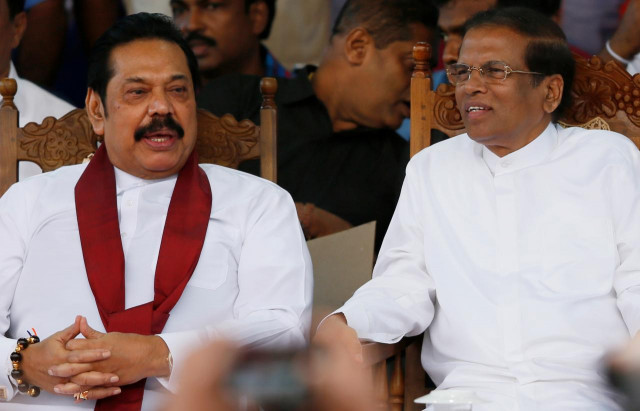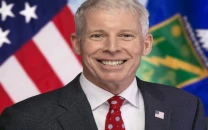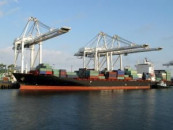Sri Lanka president signs papers to dissolve parliament
Dissolution comes after weeks of intense power struggle, followed by Sirisena’s sudden sacking of Prime Minister

Sri Lanka's newly appointed Prime Minister Mahinda Rajapaksa and President Maithripala Sirisena talk during a rally near the parliament in Colombo, Sri Lanka. PHOTO REUTERS
Sri Lanka President Maithripala Sirisena signed a gazette notification to dissolve the nation’s parliament with effect from Friday midnight, two sources told Reuters, in a move that will likely worsen a political crisis.
It will mean that new parliamentary elections can be held in January-February, one of the sources, a close ally of the president, told Reuters.
The dissolution comes after an intense power struggle in the past two weeks. That followed Sirisena’s sudden sacking of Prime Minister Ranil Wickremesinghe and the appointment of former leader Mahinda Rajapaksa in his place.
Earlier this year, Sirisena reneged on a pledge not to run for re-election, sparking tensions with Wickremesinghe who is believed to have his own presidential ambitions.
Sri Lanka President sacks PM, plunges country into crisis
Sirisena is also believed to have been behind a failed attempt to impeach Wickremesinghe in April.
Rajapakse lost the presidency in January 2015 and the subsequent parliamentary elections in August 2015.
However, his new Sri Lanka Podujana Peramuna (SLPP) party won local council elections in February and he had been attempting to engineer a dramatic comeback ahead of presidential elections slated for 2019.
The strongman put down the decades-old Tamil Tiger separatist struggle in May 2009 through a military assault that killed up to 40,000 ethnic Tamil civilians, according to rights groups.
Behind Sri Lanka's turmoil, a China-India struggle for investments and influence
His regime refused to even acknowledge war-era abuses, and bitter divisions between minority Tamils and majority Sinhalese persist.
Rajapakse’s hardline government was also accused of corruption and murdering political opponents. Several of Rajapakse’s close family and associates face several corruption prosecutions.
Sirisena had pledged accountability for war atrocities, but has faced international criticism for being slow to deliver on justice.
International rights groups have called for the prosecution of both the military and the Tigers, who were notorious for suicide bombings and enlisting child soldiers.



















COMMENTS
Comments are moderated and generally will be posted if they are on-topic and not abusive.
For more information, please see our Comments FAQ